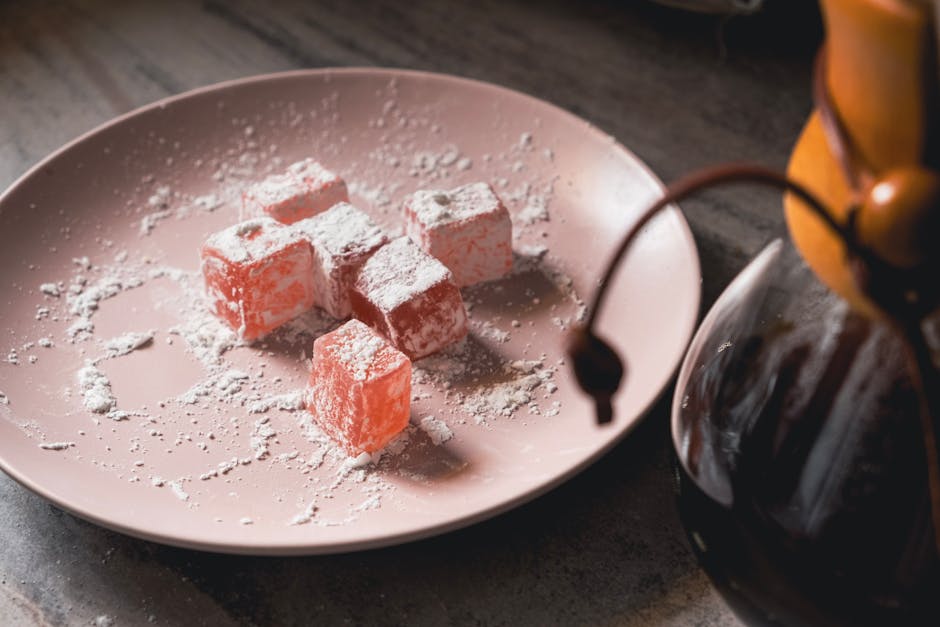Hot Tea Blends for Colds: Warm Up and Heal Naturally
Feeling under the weather? There’s nothing quite like wrapping your hands around a warm cup of tea when a cold strikes. Beyond its comforting effect, the right tea blend can help ease symptoms, soothe a sore throat, and even boost your immune system. While no tea is a magical cure, many blends are packed with natural ingredients that can support your body as it fights off a cold.

The Power of Ginger and Lemon
Ginger and lemon are like the dynamic duo of the tea world when it comes to tackling colds. Ginger, with its zesty kick, has natural anti-inflammatory and antioxidant properties. It’s been used for centuries in traditional medicine to help with digestion, nausea, and cold symptoms. Lemon, on the other hand, is rich in vitamin C, which may shorten the duration of a cold by supporting your immune system.
Imagine this: you’re sniffling away on the couch, and someone hands you a steaming mug of ginger lemon tea with a drizzle of honey. That honey isn’t just for taste, it also coats your throat and offers antibacterial benefits. Together, these three ingredients create a soothing brew that can help ease congestion and throat discomfort. Many people swear by this combination during flu season for its ability to both comfort and heal.
Chamomile: The Sleep Saver
If your cold has you tossing and turning at night, chamomile tea might be exactly what you need. Known for its calming properties, chamomile acts as a mild sedative to help you relax and fall asleep more easily. Getting adequate rest is one of the most important ways to help your body recover from illness.
Chamomile doesn’t stop at helping you sleep. Its natural anti-inflammatory compounds may help reduce swelling in your nasal passages and soothe sore throats. A cup before bedtime can be like hitting the reset button for your immune system while giving you much-needed rest.
Peppermint for Congestion
That stuffed-up feeling where breathing feels like a chore? Peppermint tea can be incredibly refreshing when congestion takes over. The menthol naturally found in peppermint works as a decongestant, helping open up airways so you can breathe easier.
Beyond just clearing your sinuses, peppermint also has antiviral and antibacterial properties that may assist in fighting off infections. Plus, its cooling sensation is perfect if you're dealing with any feverish discomfort. Add a slice of fresh lemon or some honey to enhance the flavor while reaping additional benefits.
Elderberry Tea: Immune System Booster
Elderberries are one of nature’s powerhouse ingredients when it comes to battling colds. High in antioxidants and vitamins, elderberry tea is often used to strengthen the immune system and reduce inflammation. Some research suggests that elderberries might even shorten the duration of colds or flu by interfering with virus replication.
This berry-based tea has a tart yet sweet flavor that pairs well with other herbs like echinacea or hibiscus for an added immune boost. It’s worth keeping this blend on hand if you want something both medicinally beneficial and delicious.
Cinnamon Spice: Warming Comfort
Cinnamon isn’t just for baking; it makes an excellent ingredient in teas designed to combat colds. Known for its antimicrobial properties, cinnamon helps fight bacteria while warming you up from the inside out, a welcome sensation when chills set in.
A cinnamon-based tea often includes other complementary spices like cloves or cardamom, creating what many refer to as “spiced chai.” These spices don’t just taste great, they also stimulate circulation and can help reduce inflammation throughout your body. Pairing this blend with milk or plant-based alternatives can create an extra creamy drink that’s both indulgent and healing.
Practical Tips for Brewing Your Tea
When making any of these teas at home, there are a few tricks to maximize their benefits:
- Use fresh ingredients: Whenever possible, opt for fresh ginger slices or real lemon juice over pre-packaged versions to retain maximum nutrients.
- Add honey strategically: Honey is best added after steeping hot tea so its beneficial enzymes remain intact.
- Don’t rush steeping time: Allow herbal teas like chamomile or peppermint to steep for at least 5-10 minutes to extract all their healing compounds fully.
- Hydration matters: While teas offer additional benefits, staying hydrated overall helps keep mucus thin and supports recovery during colds.
A Note on Listening to Your Body
No matter how fantastic these teas are, they work best when paired with plenty of rest, proper hydration, and nourishing foods. Always listen to what your body needs, some days that might mean sipping peppermint tea while binge-watching your favorite show; other times it might mean choosing chamomile as part of your nighttime routine.
If symptoms persist or worsen over several days despite trying natural remedies, consult with a healthcare professional to rule out anything more serious. While these teas are helpful tools in managing mild cold symptoms naturally, they aren’t substitutes for medical advice when needed.
The next time you're feeling under the weather, think beyond store-bought cough syrups or lozenges. A well-brewed cup of tea made from thoughtfully chosen ingredients can provide both comfort and relief, proving that sometimes simple remedies are some of the most effective ways to care for ourselves naturally.
